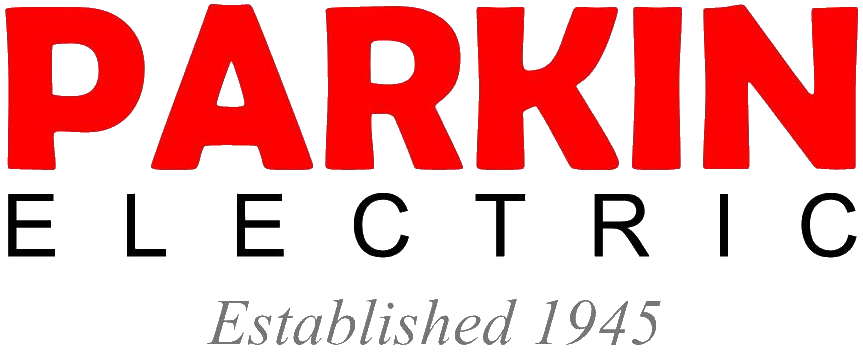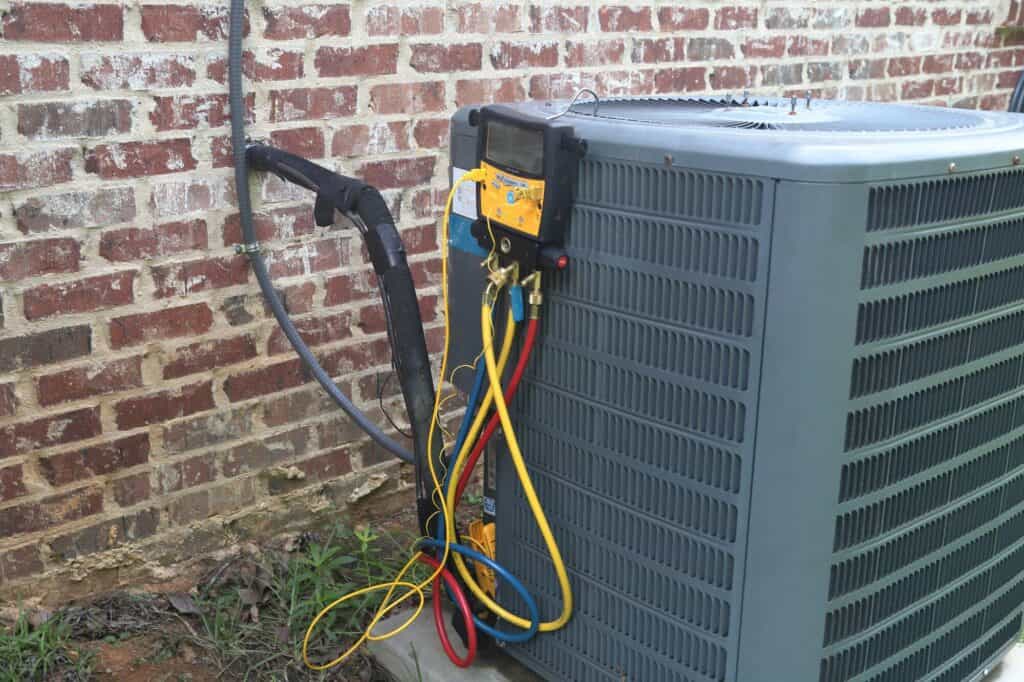Your home or workspace’s comfort relies on the performance of your HVAC system. Now, imagine the dismay when it unexpectedly fails on a scorching summer day or a chilly winter night. Frustrating, isn’t it?
Typically, these breakdowns can be traced back to HVAC electrical issues. The good news is you can take charge.
Say goodbye to unexpected breakdowns and hello to a reliably cozy home or workspace, regardless of the weather outside! Keep reading for information on where to find the best electrician in the greater Portland Metro Area and Washington State.
HVAC Electrical Components
HVAC systems have various electrical components that work together to regulate:
- Temperature
- Humidity
- Air quality
The specific components can vary depending on the type of HVAC system. Here is an overview of some typical electrical components found in many HVAC systems:
Thermostat
At the heart of your HVAC electrical system lies the thermostat. This small device regulates temperature by signaling the heating or cooling system to kick in. Correct thermostat wiring allows for proper communication between the thermostat and the HVAC unit, which is crucial.
Control Board
The control board is also known as the circuit board or control panel. This central control unit manages and coordinates the operation of various components in the HVAC system.
Relays and Contactors
Relays are electromagnetic switches that control the flow of electricity to different components in the system. They help manage high-voltage circuits.
Contactors are similar to relays. They control the power supply to larger components, such as the compressor and condenser fan.
Capacitors
Capacitors store and release electrical energy to help start and run the motors. They are found in components like the compressor and blower fan.
Transformer
Transformers change the voltage of the electrical supply to the levels required by different components in the HVAC system. The blower motor is responsible for circulating air through the system. This ensures that conditioned air reaches all your living spaces.
Condenser Fan Motor and Compressor
In air conditioning systems, the condenser fan motor helps dissipate heat from the refrigerant as it passes through the condenser coil.
The compressor is a crucial component in air conditioning systems. It compresses the refrigerant, raising its temperature and pressure for efficient heat exchange.
Sensors and Switches
Various sensors, such as temperature and pressure, monitor and provide feedback on the system’s performance.
Pressure switches help protect the system. It monitors the refrigerant pressure and shuts down the compressor if it falls outside the safe operating range.
Limit switches are safety devices that shut down the system. The switch is triggered to prevent damage under certain conditions, such as exceeding the temperature threshold.
The Importance of Proper Installation and Maintenance
A poorly installed system or neglected maintenance can lead to electrical failures. Considering the following:
Efficiency
A well-installed and maintained HVAC system operates more efficiently. HVAC energy efficiency translates to better performance in:
- Heating
- Ventilation
- Air conditioning, resulting in improved comfort
Efficient systems and early detection of potential problems can prevent costly repairs or premature replacements.
Energy Savings
Properly installed and maintained HVAC systems consume less energy. Regular maintenance, such as cleaning filters and coils, ensures the system doesn’t have to work harder than necessary, leading to energy savings and lower utility bills.
Durability
Correct installation and routine maintenance contribute to the longevity of HVAC systems. Regular inspections and tune-ups can help identify and address issues before they become major problems, extending the lifespan of the equipment.
Air Quality
HVAC systems play a significant role in indoor air quality. Proper installation and maintenance help ensure that the system effectively filters and circulates clean air. This reduces the risk of respiratory problems and allergies.
Safety
Faulty installation or neglected maintenance can pose safety risks. Regular inspections can identify and address issues such as:
- Gas leaks
- Electrical problems
- Combustion issues
Comfort and Compliance
A well-maintained HVAC system provides consistent and reliable temperature control. This is important in areas such as Portland and Washington state, with warm, dry summers and cool and wet winters.
Proper installation and maintenance are necessary to comply with building codes and regulations. Adhering to these standards ensures the safety and legality of the HVAC system and meets the electrical requirements.
Signs of Electrical Issues in HVAC Systems
Recognizing early signs of electrical problems in your HVAC system can save you from major disruptions and costly repairs. Here are some common signs to look out for:
If your HVAC system’s circuit breakers frequently trip or fuse blow, it could indicate an electrical overload or short circuit.
Fluctuations in the power supply, such as lights dimming when the HVAC system starts, may suggest electrical issues.
Strange noises like buzzing, humming, or clicking may indicate electrical problems. These sounds could be coming from malfunctioning electrical components.
A burning or smoky odor near the HVAC unit is a severe sign of electrical trouble. Turn off the system immediately and seek professional assistance.
If the thermostat doesn’t respond or the display is erratic, there may be an issue with the electrical connections between the thermostat and the HVAC system.
If the HVAC system turns on and off unexpectedly or doesn’t run consistently, it could be due to electrical issues affecting components like relays, contactors, or sensors.
A decrease in heating or cooling efficiency could be linked to electrical problems, such as:
- Failing blower motor
- Capacitor issues
- Compressor problems
Inspect the electrical components for visible signs of damage, such as:
- Frayed wires
- Melted insulation
- Burnt marks
Damaged HVAC wiring is a serious concern. The presence of sparks when the HVAC system is running is a clear sign of electrical trouble. When you experience any of these signs, it is time to contact a professional electrician for urgent help.
Safe & Efficient: Navigating Electrical System Success
It is never a good idea to do any HVAC electrical work if you are not a qualified electrician. An understanding of the electrical components of your HVAC system can help you troubleshoot problems, but rather be safe, and call an electrician for assistance.
At the first sign of HVAC electrical issues, call Parkin Electric. Our experienced team will ensure that your problems are sorted out in no time. We have been doing this since 1945; you can trust us!

